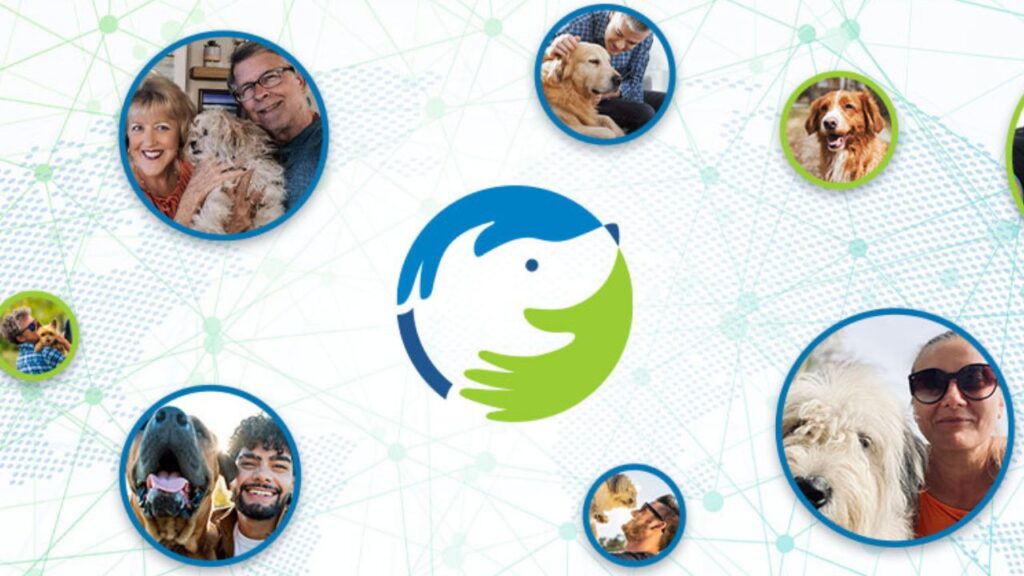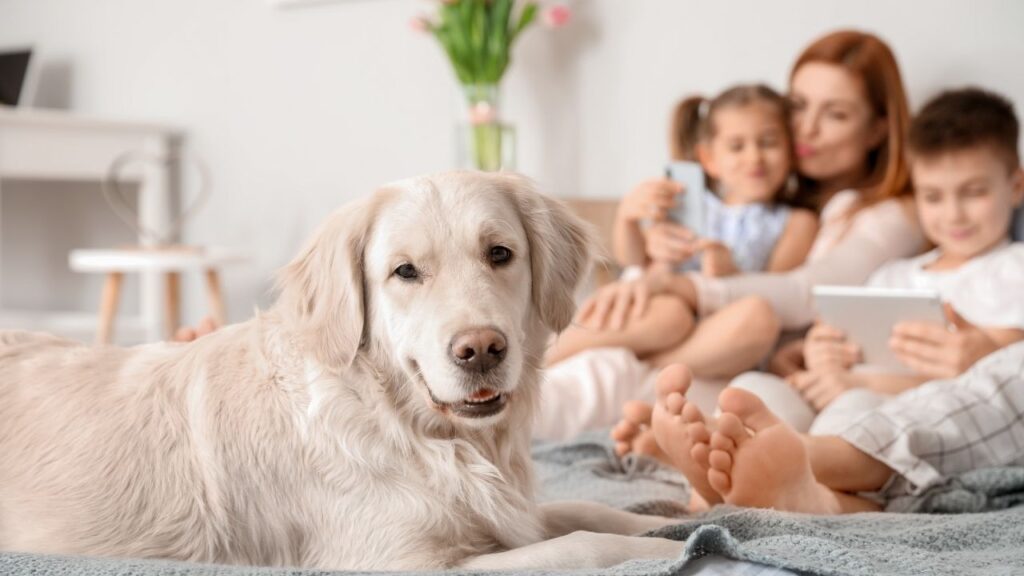The Way Out is Through: Coping Tips for a Cancer Diagnosis
Overflowing with emotions, you may miss some key information because of the initial shock. Here’s how to be true to your feelings while gathering practical information to make this time as comfortable as possible for your best friend.
Key Takeaways
- If your dog is in pain, just your presence can be a comfort. But there are also drugs, supplements, and many tools to help your dog, as well.
- Cancer is not an automatic death sentence, and dogs can definitely live comfortably with cancer.
- There are many types of treatments, including supplements, nutrition, and regular fun exercise that can significantly improve your dog’s quality of life.
- Dogs are good at hiding signs of pain, but you might see difficulty going up/downstairs, becoming slow to rise after sleeping, and not wanting to eat.
The Way Out is Through: Coping Tips for Dog Cancer
As a veterinary technician who specializes in pain management and a pet parent myself, I have a special perspective on not only the pain of cancer, but the pain of caring for a dog with cancer. While a cancer diagnosis can be overwhelming, there are many strategies to help you and your dog make it through with your sanity intact. I’ll answer some common questions about dog cancer and give my best coping tips.
Is My Dog in Pain?
So many people worry that their dogs are in pain when they find out their dog has cancer. This is a really normal fear to have. The good news is that many cancers do not cause any pain, so your dog may not be in discomfort. Your veterinarian will help you to understand if your dog is in pain, and how to help them. Here are some things that might help.
Depending on the type of pain your dog has, you can comfort your dog with your loving presence, some form of pharmacological intervention such as drugs or supplements, or physical interventions such as rugs for stability or a ramp to get in/out of the car.
While dogs are good at hiding signs of pain, as their pain increases, you may see signs of discomfort, such as difficulty going up/downstairs, becoming slow to rise after sleeping, and not wanting to eat. A good rehabilitation veterinarian might be able to help you with these challenges.
How Long Will My Dog Have?
Dogs can definitely live comfortably with cancer, and that is always the goal of veterinary medicine. How long will vary based on the type of cancer your dog is diagnosed with. Some cancers have a very short window once diagnosed, however many dogs can live comfortably for years after a cancer diagnosis.
Some pharmacological interventions are showing promise in slowing down certain canine cancers. These, along with supplements, nutrition, regular exercise, and movement can significantly improve your dog’s quality of life.
Molly Jacobson wants to drain the word "cancer" of its power.
Coping Tip: Feel Your Feelings
Sitting down with your veterinarian and receiving the news that your canine companion has cancer is one of the hardest conversations to have. Overflowing with emotions, you may miss some key information because of the initial shock.
This is Complex, Don’t Blame Yourself
Many complex emotions (fear, anger, grief, confusion) can hit you all at once. While it is tempting just to shut them all out, it’s also important that you give yourself the time and grace to feel your feelings; they are valid!
Stress Hormones Make It Hard to Think
During that first conversation, stress hormones are working, and when looking back, you may notice that you can’t recall everything, and it becomes a blur. This is because the high degree of complex emotions is putting your amygdala into overdrive.
The amygdala is the part of our brain that responds to threats or trauma. When the amygdala is triggered, it releases stress hormones into your body, taking over your brain’s rational thinking frontal lobes.1
Bring a Friend or Call a Friend
Because of this, it may be helpful to have a friend or family member in attendance with you, as they may be able to recall details that you forget later. They can also drive you and your pet home if you are overcome with emotion.
When the dust has settled, take some time to look inward and come to terms with what you are feeling.
A Brain Under Stress Makes Automatic Decisions
Keep this critical fact in mind: when you are under great stress, your brain has an instinctive tendency to make automatic decisions without processing all available information and consulting your brain’s center of logic.
Managing your stress levels by managing your emotions can help you avoid automatic, faulty decision-making.2
Meditations, journaling, and reflection may be valuable coping mechanisms when emotions are in overdrive.
Coping Tip: Build Your Support Team
In addition to your friend or family who can attend veterinary appointments with you, make a list of additional people you may be able to lean on when tasks and feelings come flooding in.
This may include:
- neighbors who can pick up prescriptions for you while they are out
- local dog sitters with medication experience that can help provide continued care if you have to go out of town
- a local handyman/woman that may be able to help with any home renovations or assembling of products that may help a pet’s mobility such as carts, stairs to reach a bed, or a ramp to go in and out of the car or house
One of the most important things is to let people help you. In order to fully be there for your dog, you have to take care of yourself. Here is how this may look:
- Make sure you are eating and sleeping as regularly as possible, and don’t feel you have to do everything yourself.
- Take time to do things you truly enjoy each day so your brain can have a break from “caregiver mode.” Some caregivers place unreasonable burdens upon themselves, in part because they see providing care as their exclusive responsibility.3
- Finally, lean into the support of your veterinary healthcare teams. Often, they themselves have been through a pet’s cancer diagnosis and can provide some much-needed empathy and an ear to listen. Many veterinary offices also offer caregiver support groups, which can provide comfort during this time.
Coping Tip: Consider Professional Help
If all of this seems overwhelming, know you are not alone. It is very common to be flooded with complex emotions at this time. If your usual support network isn’t providing the level of comfort you need, consider talking to a mental health professional, especially if you start noticing the following symptoms:3
- Feeling overwhelmed or constantly worried
- Feeling tired often
- Getting too much sleep or not enough sleep
- Gaining or losing weight
- Becoming easily irritated or angry
- Losing interest in activities you used to enjoy
This "dog cancer tip" from the editor of DogCancer.com suggests that embracing change can help you help your dog.
Coping Tip: Get Organized
Once you feel like you are at an emotionally stable place to do so, sit down and write out a plan. Use a visual calendar or even a digital calendar app to track your dog’s upcoming appointments. Here are some things to consider for your checklist or journal:
- If you will need to take time off of work to care for your pup after surgery or chemotherapy, plan this with your employer so on those days’ your work assignments can be done virtually.
- If extended days off work are needed, enlist a family member or neighbor who may be able to fill in on your behalf and take your dog in for any follow-up appointments.
- Canine cancer treatment can often be costly, adding to the emotional burden. Take the time to talk to your veterinarian about long-term costs and plan appropriately. This may mean speaking with your family about allocating funds or applying for an additional line of credit through your veterinarian.
- Consider services that will free up your time and energy on days when it is being spent on caregiving. This can be anything from enlisting the help of a housekeeper, to a neighbor to mow your lawn, to a meal delivery service for when you don’t have any more energy to give.
Ultimately, know that your support network is here for you and your pup. By letting them help you, your canine companion will receive the best care possible from a strong caregiver network.
- Rowdan, Adam. Amygdala hijack: Symptoms, causes, and prevention (medicalnewstoday.com) Medical News Today. Written April 19, 2021. Accesses Jan 28, 2023.
- Demian Dressler, DVM, with Susan Ettinger, DVM, Dip. ACVIM (Oncology) The Dog Cancer Survival Guide: Full Spectrum Treatments to Optimize Your Dog’s Life Quality and Longevity. Chapter 1. Publication Maui, Hawaii, Maui Media, LLC, 2011
- Mayo Clinic. Caregiver stress: Tips for taking care of yourself. 2018; mayoclinic.org/healthy-lifestyle/stress-management/ in-depth/caregiver-stress/art-20044784 Accessed Jan 28, 2023.
Topics
Did You Find This Helpful? Share It with Your Pack!
Use the buttons to share what you learned on social media, download a PDF, print this out, or email it to your veterinarian.







